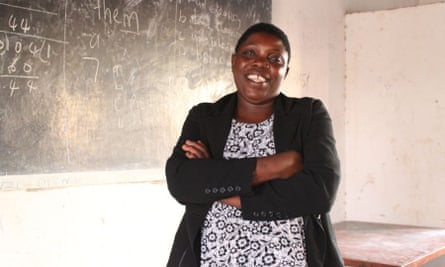The fortunes of food and energy billionaires have grown by $453bn over the past two years owing to soaring energy and commodity prices during the pandemic and Vladimir Putin’s war in Ukraine, a report by Oxfam has revealed.
As the world’s business and political elite meet for the World Economic Forum in Davos, Switzerland, the development charity said spiralling global food prices had helped create “62 new food billionaires” in just 24 months.
Cargill, which is one of the world’s largest food traders, now counts 12 family members as billionaires, up from eight before the pandemic. The Cargill family, along with three other companies, controls 70% of the global agricultural market.
Food prices, which are up more than 30% over the past year on average, are likely to push more than 263 million more people into acute poverty than before the pandemic. That is equivalent to the populations of the UK, France, Germany, and Spain combined, and would take the number of people living on less than $1.90 a day to 860 million by the end of the year.
Danny Sriskandarajah, the chief executive of Oxfam GB, said: “It is morally indefensible that people in east Africa are dying of hunger while the fortunes of the world’s super-rich are fuelled by skyrocketing food and energy prices,.
“At a time when hundreds of millions more people are facing extreme poverty, there can be no excuse for governments not to address gargantuan profits and wealth in order to ensure that no one is left behind.”
Oxfam called on world leaders meeting at Davos to immediately introduce wealth taxes on the super-rich to help tackle “the biggest increase in extreme poverty in over 20 years”.
The development charity said governments should follow Argentina’s example and introduce a “one-off solidarity tax on billionaires’ pandemic windfalls”. The Argentinian tax raised 223bn pesos (£1.5bn) last year.
Oxfam also called for the introduction of permanent wealth taxes to “rein in extreme wealth and monopoly power”. It said an annual wealth tax starting at 2% for millionaires, and rising to 5% for billionaires, could generate $2.5tn a year. That would be enough, said Oxfam, “to lift 2.3 billion people out of poverty, make enough vaccines for the world, and deliver universal healthcare and social protection for everyone living in low- and lower middle-income countries”.
A third demand is aimed at ending “crisis profiteering” by introducing a temporary windfall tax on all big companies, not only oil and gas firms as proposed by the Labour party in the UK. Oxfam said such a tax on “just 32 super-profitable multinational companies could have generated $104bn in revenue in 2020”.
“Introducing wealth taxes, for example, would raise huge sums that could help vulnerable groups to survive this crisis and build a better future,” Sriskandarajah said. “Here in the UK, a windfall tax on energy companies would be a strong place to start to help all those who are struggling to eat and heat their homes.”
A total of 573 new billionaires have emerged during the pandemic. Oxfam said the coronavirus crisis had been “the best time in recorded history for the billionaire class”.
Billionaires’ combined wealth stands at $12.7tn, according to Forbes magazine’s ranking on the super-rich. That is the equivalent to 13.9% of global GDP, and a threefold increase from 2000. The fortunes of the richest 20 billionaires are greater than the entire GDP of sub-Saharan Africa.

Nellie Kumambala, a primary schoolteacher who lives in Lumbadzi, Malawi, with her husband, two children and her mother, said: “Prices have risen so much, even since last month. Two litres of cooking oil, last month was 2,600 kwacha, now it is 7,500. Imagine. Yesterday I went to the shop to buy cooking oil, but I failed, I did not have the money.
“Every day I worry about how I will feed the household, thinking to myself, ‘What should I do today so we can eat?’” she added.
This article was amended on 23 May 2022 to clarify that a reference to the entire populations of the UK, France, Germany, and Spain combined was in relation to 263 million people, not 860 million.
